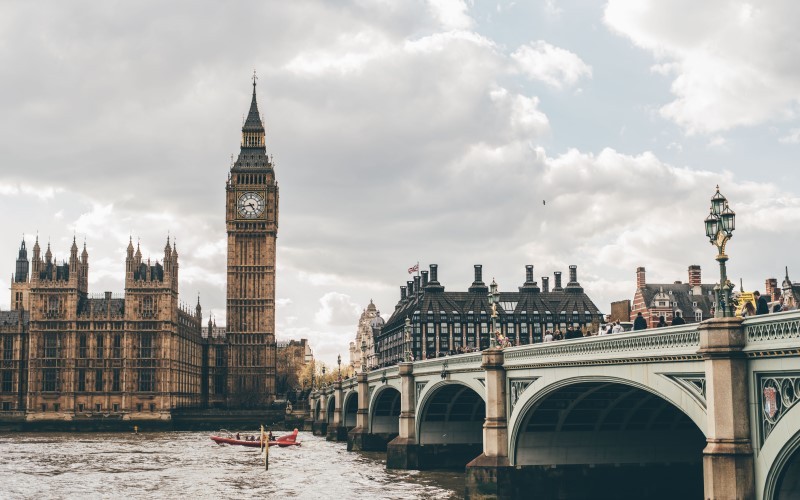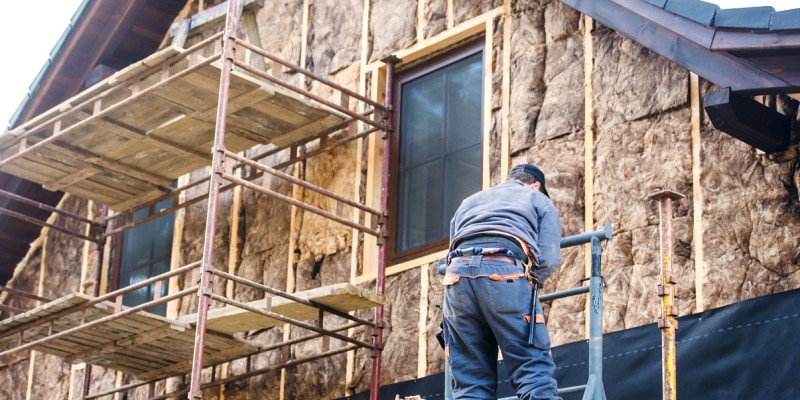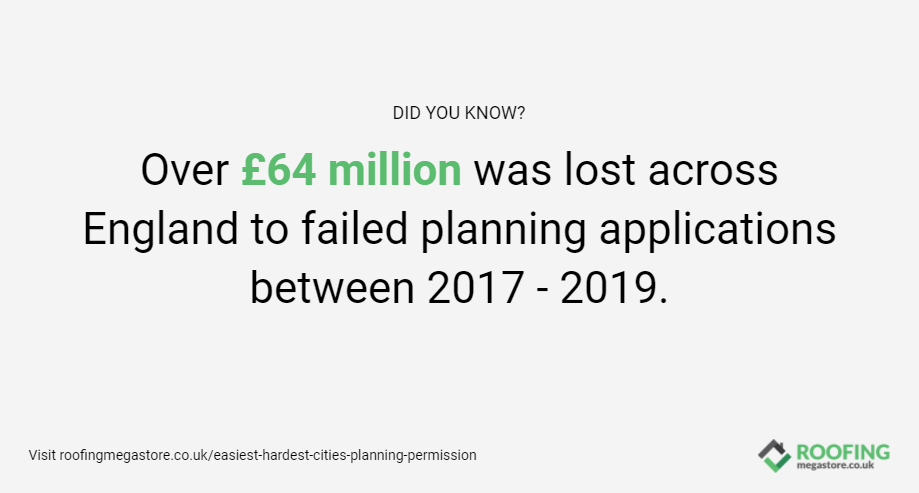Home Renovation Report: Where Are the Easiest and Hardest Places to Get Planning Permission?
Whether you’re making better use of your roof space with a loft conversion and new roof windows, or installing roof tiles on your conservatory to make it a true living space, if you’re planning a large home renovation project, you may need planning permission.
On average, 91% of planning applications for home renovations in England are granted. But, depending on where you live, your local average could be as low as 65%, or as high as 99%. So, why's there such a big difference?
To find out, we sifted through three years' worth of planning applications from over 300 planning authorities across the country, looking at how many applications were granted and rejected in each, to discover the best and worst places for gaining planning permission.
The True Cost of a Rejection
Currently, a full application for an extension on an existing home costs £206. In addition to this however, once you consider design fees for the plans and costs for accompanying surveys that may be required, you may need to pay as much as £2000 just to get planning permission before any work can begin.
Our research shows that over the past three years, 309,403 applications have been rejected across England, which equates to almost £64 million wasted on rejected applications. And that sum only takes the minimum £206 application cost into account. Factoring everything else in, the total cost could be as high as £619 million.
So, given how costly and time-consuming the process of applying for planning permission can be, we set out to conduct this research to provide any homeowner looking to renovate their property with valuable information that could potentially save them thousands.
The Toughest Towns to Get Planning Permission
According to our research, Enfield in London is the hardest place to gain planning permission in England. On average, only 65.13% of applications are granted, which is a huge 25.97% below the national average.
Eight out of the top ten most difficult places in England to get planning permission are in London. Rochdale in Manchester and Southend-on-Sea in Essex are the only two places outside the capital to feature on the list.
In contrast, Carlisle in Cumbria has granted 98.9% of planning applications over the past three years, which is 7.8% above average, making it the easiest place to gain planning permission in England.

10 Hardest Places to Get Planning Permission in England*
|
Rank |
Area |
Approved % |
|
1 |
Enfield, London |
65.13% |
|
2 |
Hillingdon, London |
66.01% |
|
3 |
Harrow, London |
69.56% |
|
4 |
Hounslow, London |
71.24% |
|
5 |
Greenwich, London |
71.47% |
|
6 |
Lambeth, London |
73.55% |
|
7 |
Rochdale, Greater Manchester |
74.03% |
|
8 |
Southend-on-Sea, Essex |
74.46% |
|
9 |
Newham, London |
76.02% |
|
10 |
Bromley, London |
76.82% |
10 Easiest Places to Get Planning Permission in England*
|
Rank |
Area |
Approved % |
|
1 |
Carlisle, Cumbria |
98.90% |
|
2 |
Copeland, Cumbria |
98.72% |
|
3 |
Richmondshire, North Yorkshire |
98.17% |
|
4 |
Vale of White Horse, Oxfordshire |
97.89% |
|
5 |
County Durham, North East |
97.82% |
|
6 |
Fareham, Hampshire |
97.79% |
|
7 |
Cornwall, South West |
97.39% |
|
8 |
Eden, Cumbria |
97.38% |
|
9= |
North West Leicestershire, Midlands |
97.36% |
|
9= |
Rushmoor, Hampshire |
97.36% |
|
10 |
Darlington, County Durham |
97.29% |
*Based on % applications granted
Curious about how your area fares? We’ve plotted all of our findings on an interactive map, just click on a pin to discover what percentage of planning applications are granted in that area.
What’s Behind the Postcode Lottery?
Numerous factors affect how likely an application is to be granted – from neighbour objections, to site specific factors, the type of development, listed status, and crucially, where in the country a property is located.
Applications are reviewed at a local level by Local Planning Authorities, and different areas have specific building regulations, planning constraints and development targets. Therefore, depending on location, the outcome of two seemingly identical applications can be completely different.
The first step to a successful application is gaining a thorough understanding of the rules that will apply in your area, and the types of project likely to be favoured or opposed by local authorities.
Renovation Hotspots in the UK
We were also curious to discover which parts of the UK are most interested in taking on large home renovation projects. We used Google search data to pinpoint the cities and towns that are searching the most for key home renovation terms, such as ‘house extension’ and ‘loft conversion’.
Interestingly, the results show that there’s far more appetite in the North for larger home improvements – with eight of the top ten being in the North of England. In fact, it seems that Greater Manchester is full of people looking to take on bigger home improvements – Stockport, Rochdale, Wigan, Oldham, and Bolton all make it to the Top 10 list.

Top 10 Home Renovation Hotspots in the UK:
- Stockport, Greater Manchester
- Rochdale, Greater Manchester
- Warrington, Cheshire
- Peterborough, Cambridgeshire
- Wigan, Greater Manchester
- St Helens, Merseyside
- Oldham
- Bolton, Greater Manchester
- Doncaster, South Yorkshire
- Bournemouth, Dorset
Unsure If You Need Planning Permission?
If you’re planning a project and you’re unsure if you need planning permission, you can contact your Local Planning Authority for help and advice.
According to GOV.UK, you need planning permission if you want to:
- Build something new
- Make a major change to your building, such as building an extension
- Change the use of your building
Planning Portal is also a great resource for anyone interested in completing a renovation project – it has advice on over fifty renovation projects about planning rules, permitted development limits and building regulations.
---
Methodology:
For all research and data analysis, please visit: https://docs.google.com/spreadsheets/d/1RPfHxqQ4IosJJYihcTw4NNiyBZSEhA4faF8ev-crMtY/edit#gid=1597875942
Planning application data sourced from here: https://opendatacommunities.org/resource?uri=http%3A%2F%2Fopendatacommunities.org%2Fdata%2Fplanning%2Fdecisions%2Fother-developments%2Fall
Average cost of planning application sourced from here: https://www.planningportal.co.uk/faqs/faq/9/how_much_does_a_planning_application_cost#:~:text=The%20fee%20associated%20with%20a,fees%20for%20England%20and%20Wales
Population data sourced from here: https://www.thegeographist.com/uk-cities-population-1000
Google search data analysis – total search volume analysed for UK towns and cities, between March 2020 and August 2020, for 10 renovation key words: house extension, home extension, kitchen extension, loft conversion, conservatory, garage conversion, extension, two storey extension, single story extension. Total search volume then weighted according to relative population to achieve an accurate ranking. For all data, please visit:

